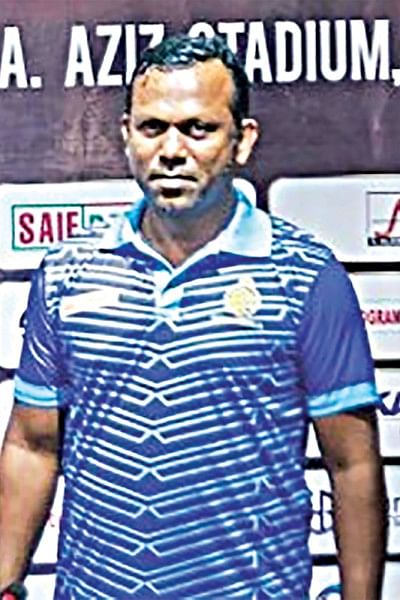‘Improvement only in money, not quality’

"Bangladesh football is in the same position it was in because organisers, players and coaches have been unable to improve their position. I only see the improvement of money, not improvement of quality," said Maruful, before elaborating on his thoughts.
"Of course, there are reasons behind the lack of improvement. As organisers, we don't have any vision, such as where we want to see ourselves after four or eight years. We don't question if we are headed the right way and whether we will be able to keep pace with Asia's top nations or even whether we will be able to match South Asian nations.
"Footballers do not emerge suddenly; they are groomed systematically from an early age. How many footballers are playing football after coming through systematic methods? If you count coaches, we do nothing to improve ourselves. We don't study or enhance our knowledge by using existing resources. So, we all are in the same old position," said Maruful.
Generally, coaches have played key roles in the football's development over the globe after plans are chalked out by the technical director, but Maruful believes organisers are the main obstacles in carrying out plans, be they short or long-term.
"The technical director can't implement the development plan or roadmap, he only makes the design. It is the organisers' responsibility to implement it. I think our organisers are big obstacles to implementing a development plan, even a short-term plan. I think our organisers don't understand, or despite understanding, they look for development overnight. So most of the plans are not implemented in Bangladesh," said the 50-year-old coach.
"There is no shortcut to development. Organisers must change their view and take at least an eight-year plan instead of focusing on only two or three years. Money is a pre-condition to development and now there is a good flow of money in both the federation and clubs. But money must be utilised in a proper way to develop football for the long term instead of short term. You can first plan for eight years and start implementing it for the first four years and think of the second phase later. The implementation must be uninterrupted. It can be a pilot project that will feature only those districts which are active in football activities," opined the coach, whose presentation of a development project was praised by AFC in 2006.
Using India, Bhutan and Nepal as examples, Maruful said they had first led from the front and invested at the grassroots level and before private corporate houses came forward to carry out initiatives.
"Neighbouring nations like India, Nepal and Bhutan have been working at the grassroots level and towards youth development, which is being implemented directly by the federations. Other corporate houses have come forward with initiatives as those federations made investors understand what the development and culture of football is. Bangladesh does not have a real football culture. It has a traditional football culture which is not supportive. It is the federation's responsibility to ensure a culture of grassroots football with youth development that must last 12 to 16 years."
Maruful sees only two pieces of evidence of development over the past 12 years: a couple of corporate houses enlisting into the league and ensuring payments, and an increase in the number of coaches. But he is not optimistic about changes in football after the September 3 polls.
"I am not hopeful that the upcoming election can bring change to the country's football because I am not hearing anything regarding development plans from any party with the intention to contest the elections. They are the same ones who are at the helm or were once at the helm," said Maruful, who is also a BFF delegate.
Maruful believes four of six components need to be introduced to take Bangladesh football to new heights.
"If you see developed football nations, there are four to six components available there. These are proper short-term planning, long-term plans with action, a flow of money, strong grassroots and youth programmes, rich education of coaches, competitive, well-organised and synchronised league and fixtures and top local players playing abroad. To become a top football nation, Bangladesh must have at least four of the components mentioned above. Otherwise, it can't be top football nation," said Maruful, who rated the BFF executive committee four out of 10 due to the involvement of corporate houses in the BPL and a good flow of money in football.

 For all latest news, follow The Daily Star's Google News channel.
For all latest news, follow The Daily Star's Google News channel. 



Comments